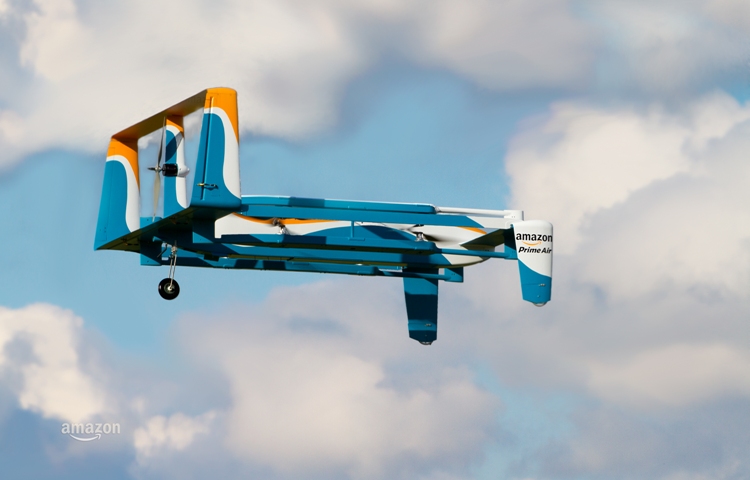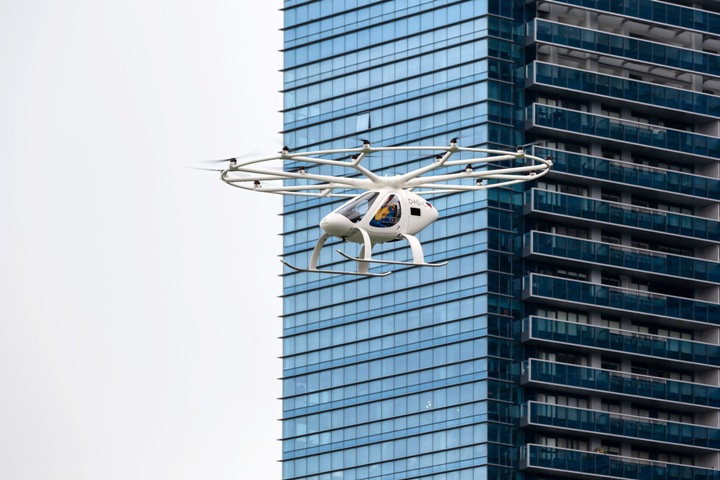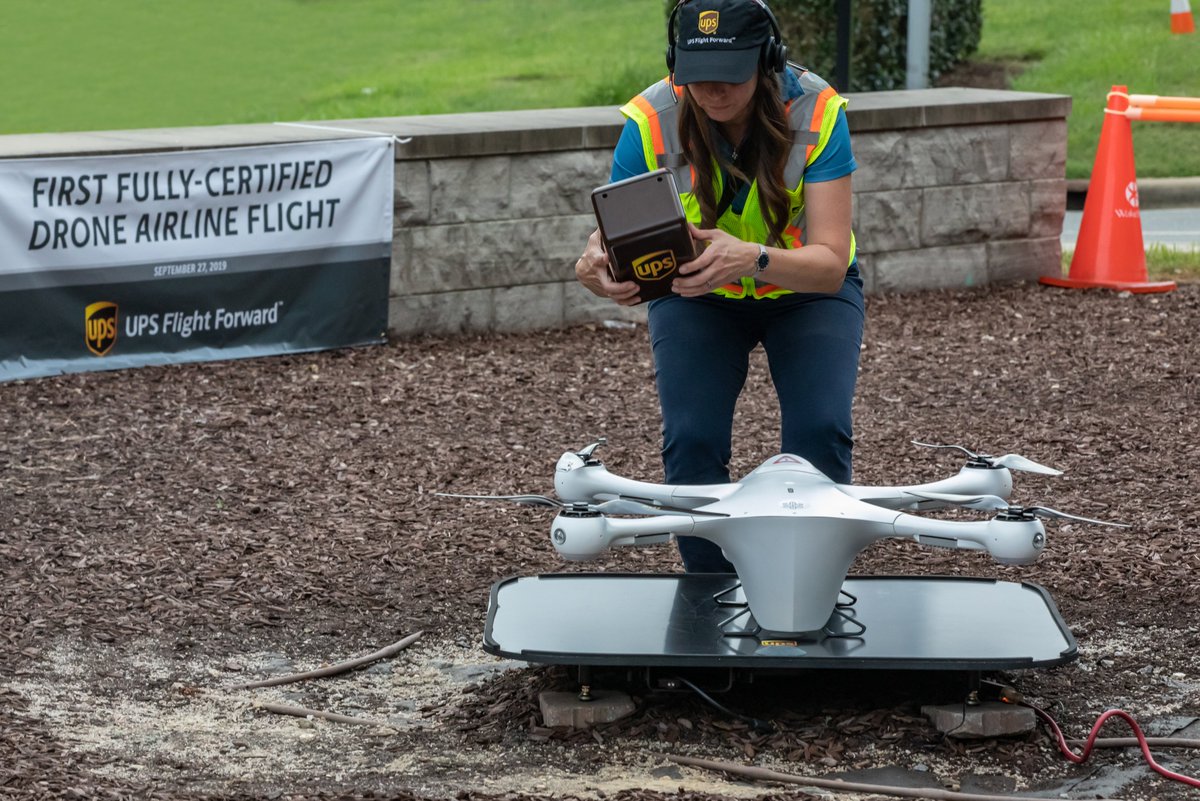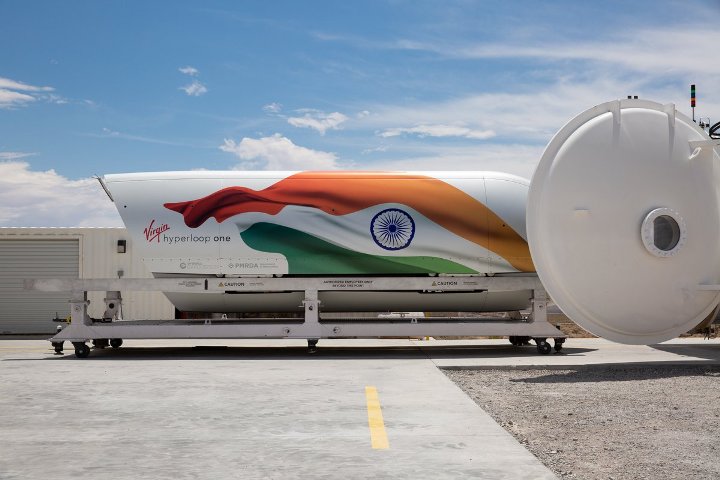Five crazy tech predictions that are set to become reality
Well, in the next few years, the world is set to witness another wave of technological innovation where flying taxis, driverless cars, space tourism, will no more be a buzzword.

- Country:
- India
Technology has now become an integral part of our lives and if it is directed towards the right trajectory along with enabling policy environment, information and communications technologies (ICT) can possibly solve all existing challenges and revolutionize the way we live, travel and work.
In the next few years, the world is set to witness another wave of technological innovation where flying taxis, driverless cars, space tourism, will no more be a buzzword. Here are a few crazy tech predictions that will be a reality in the not-too-distant future.
Flying taxis
To tackle challenges surrounding urban mobility such as rising congestion, increasing greenhouse gas emissions and energy consumption, dozens of companies are working on all-electric flying taxi models.
Recently, a German start-up Volocopter, in collaboration with the Ministry of Transport (MOT), the Civil Aviation Authority of Singapore (CAAS), and the Economic Development Board (EDB), successfully pilot-tested its manned flight over Singapore’s Marina Bay. The innovative air taxi covered a distance of approximately 1.5 kilometers and lasted for two minutes at an average cruising height of 40 meters.
 Image Credit: Nikolay Kazakov / Volocopter
Image Credit: Nikolay Kazakov / Volocopter
Other big automotive manufacturers including Uber Technologies, Airbus, and startups like China's Ehang are also investing in developing futuristic flying taxi service
Delivery Drones
Many companies are currently working on improving drones or unmanned aerial vehicles (UAVs) so that drone deliveries can become a reality. E-commerce giant Amazon is testing UAVs designs and mechanisms to deliver packages safely and quickly in a variety of operating environments. Amazon Prime Air, a future delivery system designed by the company to safely get packages to customers in 30 minutes or less was pilot tested on December 7, 2016. With the customer's package on board, the fully autonomous electrical-powered drone rises into the sky, finds its destination using GPS and delivers packages up to five pounds in 30 minutes or less.
Back in June 2019, Amazon unveiled the latest design for its Prime Air drone that can do vertical takeoffs and landings, like a helicopter and can easily transit to airplane mode and then back to vertical mode. To identify static and moving objects around it, the new drone uses diverse sensors and proprietary computer vision and machine learning algorithms.
Prime Air has a great potential to enhance Amazon delivery services, whilst simultaneously increasing the overall safety and efficiency of the transportation system.
Last month, United Parcel Service (UPS), received FAA (Federal Aviation Administration) approval to operate a 'drone airline' in the United States. With this certification, UPS Flight Forward, the company's drone delivery subsidiary will soon be able to fly drones or UAVs to deliver packages
 Image Credit: Twitter / UPSers
Image Credit: Twitter / UPSers
Hyperloop
Currently, under development, Hyperloop is a new mode of transport that is sustainable and fully autonomous. It can move freight and people safely to the destination with no stops along the way, 10-15 times faster than traditional rail. Adding to the existing forms of transportation it will integrate seamlessly with the existing modes of road, rail, ports and air transport, whilst simultaneously transforming travel time from hours to minutes.
In 2013, Elon Musk, the founder of Tesla and SpaceX, proposed the first ambitious Hyperloop that would connect Los Angeles to San Francisco in just 35 minutes.
Virgin Hyperloop One, a privately-held company is also one of the contenders, out to create a commercial Hyperloop to expand possibilities and eliminate the barriers of distance and time. Back in June 2019, the Government of Maharashtra, India approved the DP World (DPW) - Virgin Hyperloop One consortium as the Original Project Proponent for the Mumbai-Pune hyperloop project that is proposed to interlink Central Pune and Central Mumbai with a potential commute time of less than 30 minutes as opposed to the current 3.5+ hours by road and supporting up to 200 million passenger trips annually.
 Image Credit: Twitter / Virgin Hyperloop One
Image Credit: Twitter / Virgin Hyperloop One
Virgin Hyperloop One has proposed a two-phased approach for the project- Phase 1 of the project includes the construction of an 11.8 km demonstration track with USD500 million of private equity funding, followed by Phase 2 which would build the rest of the 100 km hyperloop system connecting Pune with Mumbai, with the option to add a stop at the proposed Navi Mumbai International Airport.
Once commercialized, the Pune-Mumbai hyperloop transportation system will make India the first country to host the first hyperloop transportation system in the world. Alongside India, Virgin Hyperloop One has undertaken projects in KSA, the U.S., and the UAE.
Hyperloop Transportation Technologies (HyperloopTT), an innovative transportation and tech company just shared the results of the Great Lakes Hyperloop Feasibility Study, a project undertaken by the company to connect Cleveland, Chicago, and Pittsburgh via a Hyperloop network.
Autonomous vehicles
The rapid urbanization and increasing demand for ICT services have given birth to the concept of autonomous vehicles. Autonomous or 'self-driving' vehicles are defined as vehicles that are capable of sensing its environment and navigating without human input to control the steering, acceleration, and braking.
Self-driving cars intend to increase transport accessibility while reducing crashes, energy consumption, pollution, and congestion. Autonomous vehicles offer numerous benefits including reduced mobility and infrastructure costs, increased safety, increased mobility, increased customer satisfaction, and reduced crime.
Major automakers including Tesla, Uber, General Motors, Volkswagen and Alphabet, Google's parent company are in the race to introduce fully autonomous cars. Few of them have even missed their own deadlines, owing to safety concerns and legal frameworks.
Well, whatever the case, self-driving vehicles are sure to hit the roads in the upcoming 3-4 years.
Space Tourism
Space tourism is set to become a reality with tourism companies like Virgin Galactic that have even begun Astronaut Readiness Program, an important and mandatory step to prepare customers for their flights to space. Over 600 Future Astronaut customers from across 60 countries have signed up to fly on Virgin Galactic's SpaceShipTwo that flew into space at three times the speed of sound with three crew members on board on 22nd February 2019.
Last month, aerospace company Boeing and Virgin Galactic announced their collaboration to commercialize space travel in safe and environmentally responsible ways. Under the partnership, Boeing will invest USD 20 million in Virgin Galactic and will work together to broaden commercial space access.
Other promising space tourism companies including Elon Musk's SpaceX and California-based Orion Span have also joined the race to unlock the future of space travel.
(Disclaimer: The opinions expressed are the personal views of the author. The facts and opinions appearing in the article do not reflect the views of Devdiscourse and Devdiscourse does not claim any responsibility for the same.)
- FIRST PUBLISHED IN:
- Devdiscourse
ALSO READ
U.S.-Ukraine Peace Talks: A New Hope for Conflict Resolution
Conflicting Narratives: U.S. Intelligence vs. Putin's Ambitions in Ukraine
Pandya's Power Surge Secures Series Victory for India
Crisis in Congo: Refugee Surge Strains Burundi's Resources Amid Ongoing Conflict
Justice Served: POCSO Act Court Convicts Principal and Teacher










